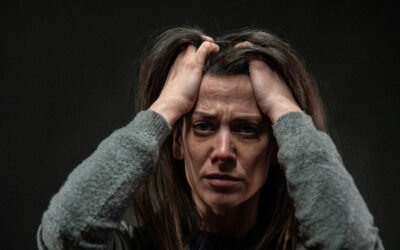Are you someone who enjoys creative projects and activities like drawing? Have you not been able to draw anymore after a major depressive episode? You’re not alone.
Depression is a type of major depressive disorder that causes people to experience low moods and a lack of interest in normal everyday activities. Research estimates that more than 8% of people in the U.S. experienced, at a minimum, one major depressive episode in the year 2020. That means that 21 million adults experienced a period of depression in one year alone.
Despite there being a significant number of people who experience depression, a much smaller number of people actually receive treatment. Treatment is an important part of learning to manage the symptoms that disrupt daily life.
That specific symptom of depression where you feel like you’ve lost interest in your normal hobbies or passions actually has a name. This feeling is referred to as anhedonia. It may involve a disinterest in things you used to enjoy participating in, like meeting with friends, going to your weekly pottery classes or drawing. It can be mostly attributed to serotonin levels that have become too low. If you’re an artist who used to enjoy painting, writing or drawing but you feel like your depression has stolen away your passion, leaving you thinking, “I can’t draw anymore,” keep reading below.
How does depression affect your daily life?
- Loss of interest in hobbies.
- Loss of interest in work.
- Loss of interest in friends and family.
- Loss of interest in eating.
Why can depression cause a loss of interest in some of your favorite hobbies?
While experts aren’t sure exactly why depression causes a loss of interest in hobbies, here are a couple of possible reasons:
- Low serotonin — One possible reason for a loss of interest is because of diminished serotonin levels. Serotonin is the chemical responsible for happiness and rewards. If you don’t feel like you can draw anymore because of your depression, it may be due to low serotonin levels.
- Brain activation issues — Some research shows that a loss of interest in hobbies and previously enjoyed activities can be attributed to the brain’s failure to sustain activation in certain areas. If you can’t draw anymore like you used to because you have depression, it might be because of problems with the prolonged activation of areas of your brain.
What can be done about depression if it has negatively affected your passions?
- Try process-based talk therapy — Talk-based therapy can be helpful for those who are dealing with chronic depression. Not only can having a professional to talk to about your mental health experiences help ease concerns, but it can also help address them. Speaking with a licensed mental health professional can be a highly effective treatment method for some people, especially if done through the right approach. A popular approach called process-based therapy focuses on building long-term goals and specific positive outcomes with regular sessions.
- Try taking medication for depression — Another option for dealing with depression is taking prescribed medication. Medication may work for some people, while others prefer not to use it. You can talk with your health care professional about whether beginning medication for depression would be best for your specific needs.
- Try reintroducing yourself to drawing — If you’ve found that your depression has left you feeling like you can’t draw anymore, it might help to try to find treatment for your depression before returning to your hobby. You might find that after treatment or a combination of treatments, your interest in drawing sparks back up again.
Lightfully wants to help you get back into your hobbies and manage your depression
Our Lightfully team mission is to work with you to change your life compassionately. We strive to provide high-quality mental health care to various types of clients through a focused approach to process-based therapy. The framework of our clinic consists of evidence-based, clearly defined, data-driven and whole-person-centered care. Lightfully offers various layers of service to both adults and teens through our residential, virtual, partial hospitalization (also called our Day Treatment programs), and intensive outpatient programs. We regularly see clients who actively manage mood disorders, anxiety disorders, personality disorders and trauma disorders. If you can’t draw anymore because of your depression, we’d like to help.
Our licensed, clinical experts see each client as a complex and layered human – not just a diagnosis. We value our clients as they are and hope to enrich their lives through treatment. Our vision for the future is an authentic and loving community where everyone can be seen, heard, and valued as they are. We believe in the light within each individual, and when that light is properly nurtured it can allow a person to shine brighter than ever before.
Change is possible. When you’re ready to take the first step, reach out to our Admissions Concierge Team. We’ll take the next steps together, toward the fullest, brightest version of you.





